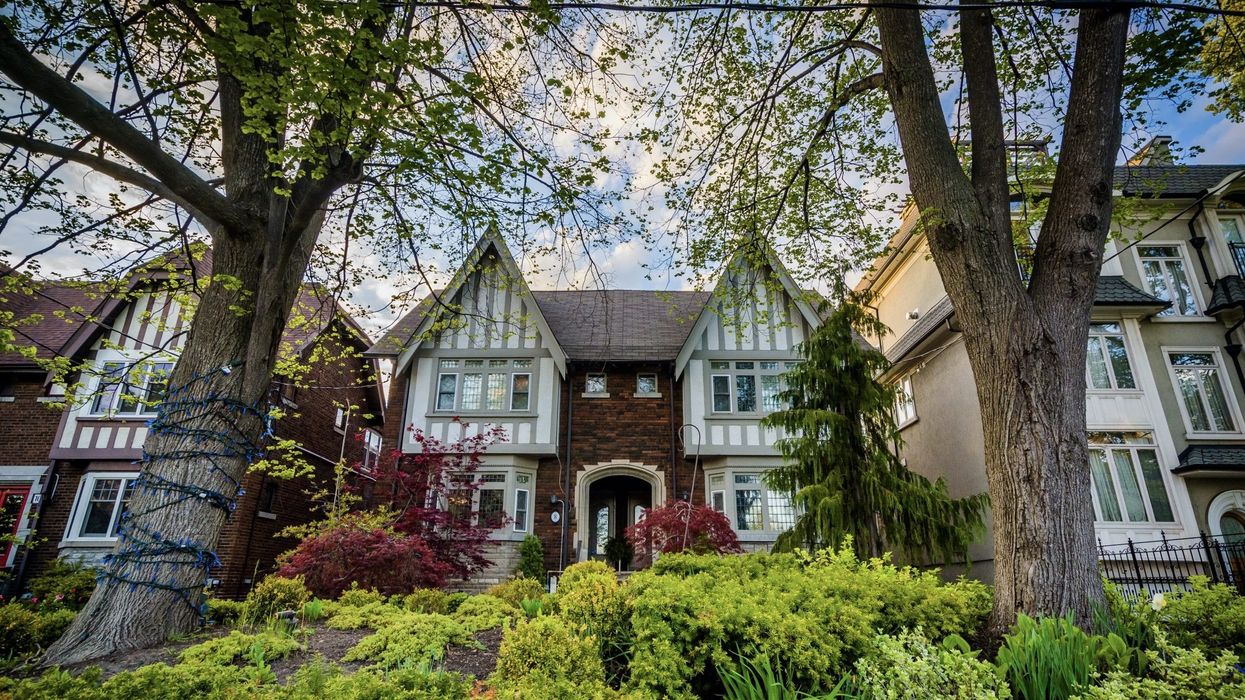As the year that felt like it would never end draws to a close, one thing we can look forward to is continued activity in the Toronto housing market -- with growing demand, low supply, and rising prices keeping the market in seller's territory.
In fact, RE/MAX has forecast that Toronto home prices will rise up to 6% in 2021, after rising 12% on average in the first 10 months of this year compared to the 2019 12-month average. In 2020, the Toronto housing market saw the average price rise to $918,883 (January 1 to October 31) compared to $819,832 in 2019 (January 1 to December 31).
READ: $1M Over Asking? The Most Sought-After Toronto Listings in 2020
This push will be characterized by low inventory -- which has been a common trend across many Ontario housing markets in 2020 -- growing demand, and rising prices, ultimately impacting activity and putting upward pressure on prices. As a result, if Re/MAX’s Toronto Housing Market Outlook report proves right, that average will climb to $974,015 across all property types. by the end of next year.
This comes as the Toronto housing market currently has two months worth of inventory on hand and as housing supply levels continue to decline -- and aren't expected to improve in 2021 -- which will also push average home prices up.
With nine months of living amid the pandemic behind us, it's clear that COVID-19 has shifted buyer behaviours -- especially here in Toronto.
As a result, the Toronto housing market has experienced shifts in buyer demand prompted by economic factors, lifestyle changes, and a lack of immigration in the wake of COVID-19. This has lead to Toronto’s condo market currently being a buyer’s market, whereas the rest of the market continues to favours sellers.
READ: October Property Sales Data Shows Little Demand for “Tiny Condos”
As more workers are forced to work remotely from home, many Toronto buyers have been choosing homes based on affordability -- most often outside of the downtown core -- rather than choosing to live closer to their place of work. However, RE/MAX says this is a trend that's also happening across other Canadian housing markets as well as abroad as homebuyers seek more square footage and green space, and less density.
“We’ve seen a lot of anecdotal evidence since the summer that households are considering significant lifestyle changes by relocating to less-dense cities and neighbourhoods,” says Christopher Alexander, Executive Vice President and Regional Director, RE/MAX of Ontario-Atlantic Canada. “This has sparked unprecedented sales this year in suburban and rural parts of Canada and we expect this trend to continue in 2021.”
Looking to the new year, RE/MAX says immigrant homebuyers are also expected to drive market activity, including those coming to Toronto for education purposes, along with the expected influx of immigration from outside the country.
Earlier this fall, the federal government unveiled an ambitious immigration plan that would allow the country to welcome more than 1.2 million new immigrants over the next three years, with up to 401,000 new permanent residents in 2021, 411,000 in 2022, and 421,000 in 2023 — an increase of 50,000 each year compared with the previous targets. The previous plan set targets of 351,000 in 2021 and 361,000 in 2022.
Given this push, the Toronto condominium segment is expected to experience the most activity in 2021, based on their affordability -- particularly for first-time homebuyers.
As for outside of the downtown core, the condominium market has been relatively balanced since the start of COVID-19, based on buyers looking for more space while still being mindful of budget.
Toronto’s luxury housing market, on the other hand, remains largely unaffected by COVID-19 and continues to be driven by move-up buyers.
If 2020 has taught us anything, it’s that a lot can change in a short matter of time. As we continue to navigate the second wave of the pandemic -- both locally and nationally -- and transition into the new year, we must consider the impacts COVID-19 will have on the housing market and, subsequently, the economy.
Time will tell, but for now, let’s hope 2021 holds as much good news for the rest of economy as it seems to suggest for Toronto home prices.





















